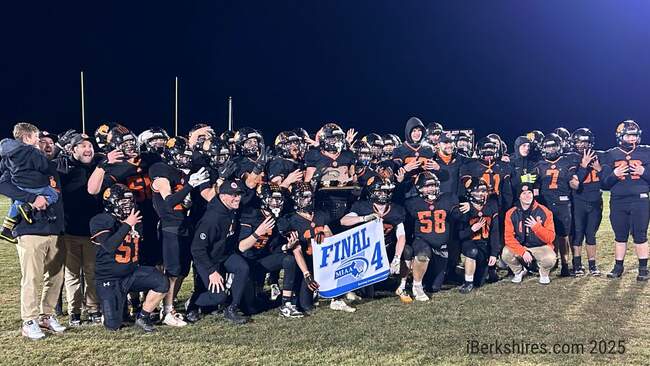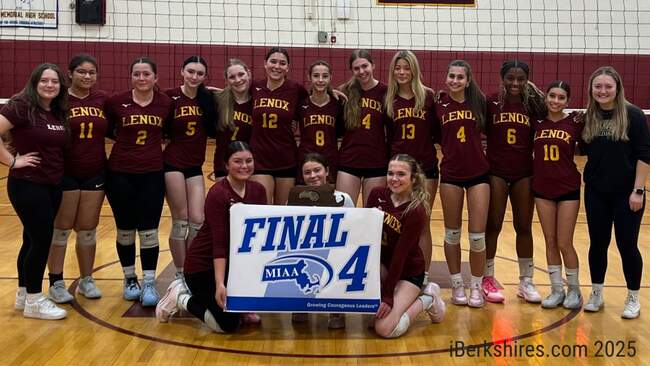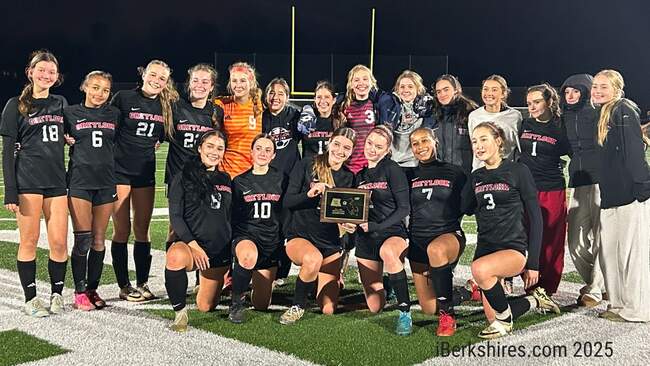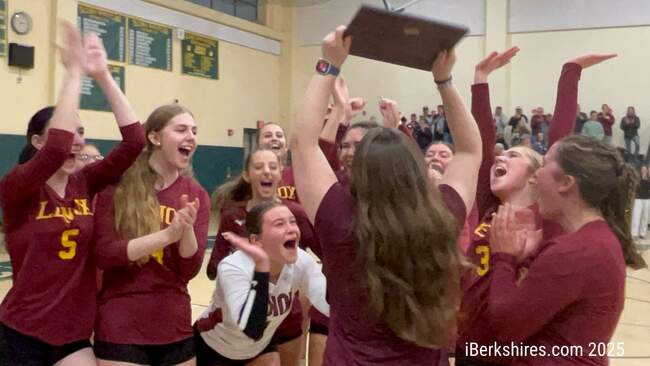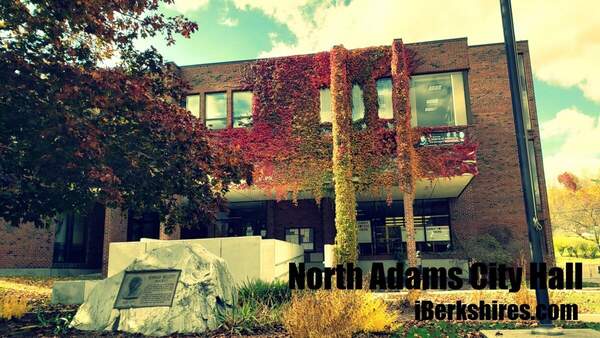Water Plan Doused in Williamstown
WILLIAMSTOWN — Opponents of extending the town's waterline to Mount Greylock Regional High School can contemplate their South Williamstown landscape free of any potential development — however chimerical — after the proposal was defeated by a scant 14 votes at town meeting Tuesday.And officials with the Clark Art Institute, Northern Berkshire Health Systems and the Williamstown Art Conservation Center will have to go back to the drawing board to review their proposed projects that would have tied into the line.
While 463 voted in favor of the measure and only 253 voted against it, the proposal for the town to borrow $875,000 to fund the waterline needed a two-thirds majority.
Committee Mount Greylock Regional School Committee Chairman Robert Petricca said the outcome was disappointing, and the committee now has to assess both its short-term needs — removing the contaminant perchlorate from its well water — and long-term requirements — finding enough volume for fire protection when the 40-year-old school is eventually renovated.
"Yeah, I'm very disappointed," Petricca said yesterday. "It's discouraging. It [the project] was so great for the high school. It would have solved all our problems forever — the contamination and fire protection. Now it's down the drain."
He added, "You don't get those opportunities every day. But the town has spoken, and we can't cry over spilled milk — or water."
He said it was particularly discouraging because so many people — 136 by Town Clerk Mary Kennedy's count — left the meeting before the vote was taken shortly after 10 p.m. Many seemed discouraged by long lines at the speakers — microphone and lengthy speeches by those both in favor and against the project. The final vote was taken by secret ballot.
The project, estimated at $3.4 million, had the support of the Selectmen, Finance Committee and Mount Greylock School Committee. Most of the cost would have been covered by contributions from the Clark (up to $1.8 million), Northern Berkshire Health Systems ($200,000) and Williamstown Art Conservation Center ($350,000). The Clark would have bought Phelps Knoll from the health company to build a satellite that would have house the conservation center, and Sweetwood would have built its planned 68-unit expansion on land now reserved for its wells. The high school would have received drinking water and water with volume enough for a sprinkler system when renovations require it. The town's borrowing would have been paid off by water sales to those entities, and town water rates would have remained the same.
"We're in a difficult position," Petricca said. "We were kind of the third party in all this, and we don't have any money. We want to see what the Clark and Northern Berkshire Health Systems are going to do. We'll look at our options and see what it makes sense to do. We'll probably take some time and really give it some thought. But our options for alternative water sources are not good, and they have multi-million-dollar price tags."
He said a water storage tank and pumping station [a similar one at Monument Mountain Regional High School cost $750,000] could be folded in as part of renovation costs.
"Now we have to try and get some water somewhere," he said.
The special town meeting drew an almost unprecedented 852 registered voters to the elementary school. They started arriving shortly after 6 p.m. to check in and receive their bright pink voting cards and continued filing into the gymnasium in a steady stream in such numbers that the meeting's start was delayed for nearly 40 minutes. They ranged around the walls all around the immense room and sat on the floor, thronging all but the area directly in front of the officials' dais. Some stood in the doorway and gathered around in the hallway outside.
The turnout came within 20 voters of equaling the record set in 1999, also on a Nov. 9, when 871 registered voters turned out to authorize the bond for the new elementary school.
"But that meeting ended at 9 p.m.," said Town Clerk Kennedy, who stayed at the school until nearly 11 p.m.
"I figured we'd have a good crowd, but I certainly never expected anything like that turnout," she said.
When the question was called at 9:50 p.m., a line of at least two dozen speakers still stretched out, awaiting their turn at the microphone.
One man was overheard talking on his cell phone to children at home, telling them to "Put your jammies on and go to bed, because it's going to be a long night."
Deborah Dane of 132 White Oaks Road moved that voting be by paper ballot because the institutions involved in financing the water line were, other than Williams College, the "top three employers in town," and she feared some employees might feel constrained if they had to vote publicly. Voters agreed, with 479 in favor of paper ballots. Some of the employees, Dane said, had told her that their supervisors were urging favorable votes.
Trish Gorman of White Oaks Road said, "People are worried about retribution." Elaine Moynahan of Jerome Drive added, "Democracy is worth a little patience."
Opponents of the water-line extension maintained that alternatives had not been adequately explored and that a town waterline would prompt development that would deface the scenic entrance corridor from the south. But town, school and Clark officials said other water sources were inadequate and, furthermore, would be expensive.
Now, the institutions have decisions to make. Clark Director Michael Conforti said the Clark would locate its new art, education and conservation center on its South Street campus, about 500 yards from the front of its red granite 1973 building and 100 feet from the Buxton School property line. The Clark's master plan designates that area as seasonal overflow parking.
Conforti said Clark officials would meet with architects in the next two weeks to revise building plans, which they expect to make public in January. Groundbreaking is expected in May in time for the museums 50th anniversary.
Northern Berkshire Health Systems CEO John Cronin said, "It means we have to start over with our planning. We've probably got a year of planning ahead. I expect it will take us that long before we're back before the ZBA again. I really had maintained hope there would be a different outcome."
The Clark, with its healthy endowment, would have provided guarantees to help NBHS obtain financing for the 68-unit Sweetwood expansion. But Cronin said the health company would now appeal to a number of potential financing sources.
While he was disappointed in the vote, he said, "I was delighted to see so many people show up. I was disappointed to see people leaving before it was time to vote. But it's time to move on. We will continue our dialogue with the high school."
One possibility, he said, might be for the school to connect with Sweetwood wells, which the state Department of Environmental Protection could allow on a temporary basis.
Sarah Gardner, a member of the Planning Board who teaches environmental studies at Williams College, said she was pleased with the outcome.
"The public's desire to prevent sprawl down Cold Spring Road and into South Williamstown was decisively reaffirmed," she said. "I think it was made clear that residents do not favor sprawl development."
She added, "People learned last night that there are viable alternatives for provision of clean drinking water and fire protection at the high school that are much less expensive and have fewer negative consequences."
Anita Barker, also an opponent, said, "The vote was very close, but a win is a win is a win. I was gratified by that. I think the project was being rammed down our throats ... Williamstown tends to overtalk — we're a town of talkers. But I feel it was rushed, and I don't think the voters liked that ... It could have passed if it had been handled a little better."
Now, she said, "Everybody will work together to decide what's best for the school."
But Selectman Philip Guy said, "I'm not going to give up the fight for the waterline. It's just going to cost us a lot more money now."
Selectman Charles Schlesinger said, "I think we missed a good opportunity. I think the Board of Selectmen did a good job of advocating what seemed to us a good solution to the high school water problem. Any other solution is going to cost the taxpayers.
"I guess an awfully big number of people don't want to see the town changed in any way."

